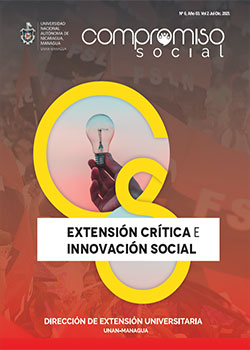The school garden as a tool for environmental awareness for learning and food improvement in rural communities
DOI:
https://doi.org/10.5377/recoso.v3i6.13527Keywords:
Productive diversification, food, education, orchards, sustainabilityAbstract
The role of higher education is called to play an important role in the training of professionals with quality and human warmth, values that respond to society with solidarity and respect.
In this sense, the National Autonomous University of Nicaragua UNAN-Managua, in its Multidisciplinary Regional Faculty of Chontales (FAREM-Chontales), following the reasoning raised, has developed an initiative to support the Ministry of Education which has harmonized the objectives and methodology work for the implementation of School Gardens in two schools in San Miguelito community, Juigalpa, Chontales department, Nicaragua, benefiting 69 young people in multigrade per meeting in high school with ages ranging between 14 and 20 years and 20 day multigrade children with ages ranging from 5 to 13 years and 18 university students. From the university, three principals have been appropriated: the acquisition of knowledge, the creation of habits and the development of communication, especially in the rural context, which is a universe of knowledge and wisdom that can be used towards the protection of consciousness, the diversity of senses of the social collective, to the socio-productive conditions that can be added to the development of educational objectives at all levels, to influence the improvement of educational quality, productive diversity and diet, ensuring food and nutrition to the peasant family
889
Downloads
Published
How to Cite
Issue
Section
License
Copyright (c) 2021 Universidad Nacional Autónoma de Nicaragua, Managua (UNAN-Managua)

This work is licensed under a Creative Commons Attribution-NonCommercial-ShareAlike 4.0 International License.




